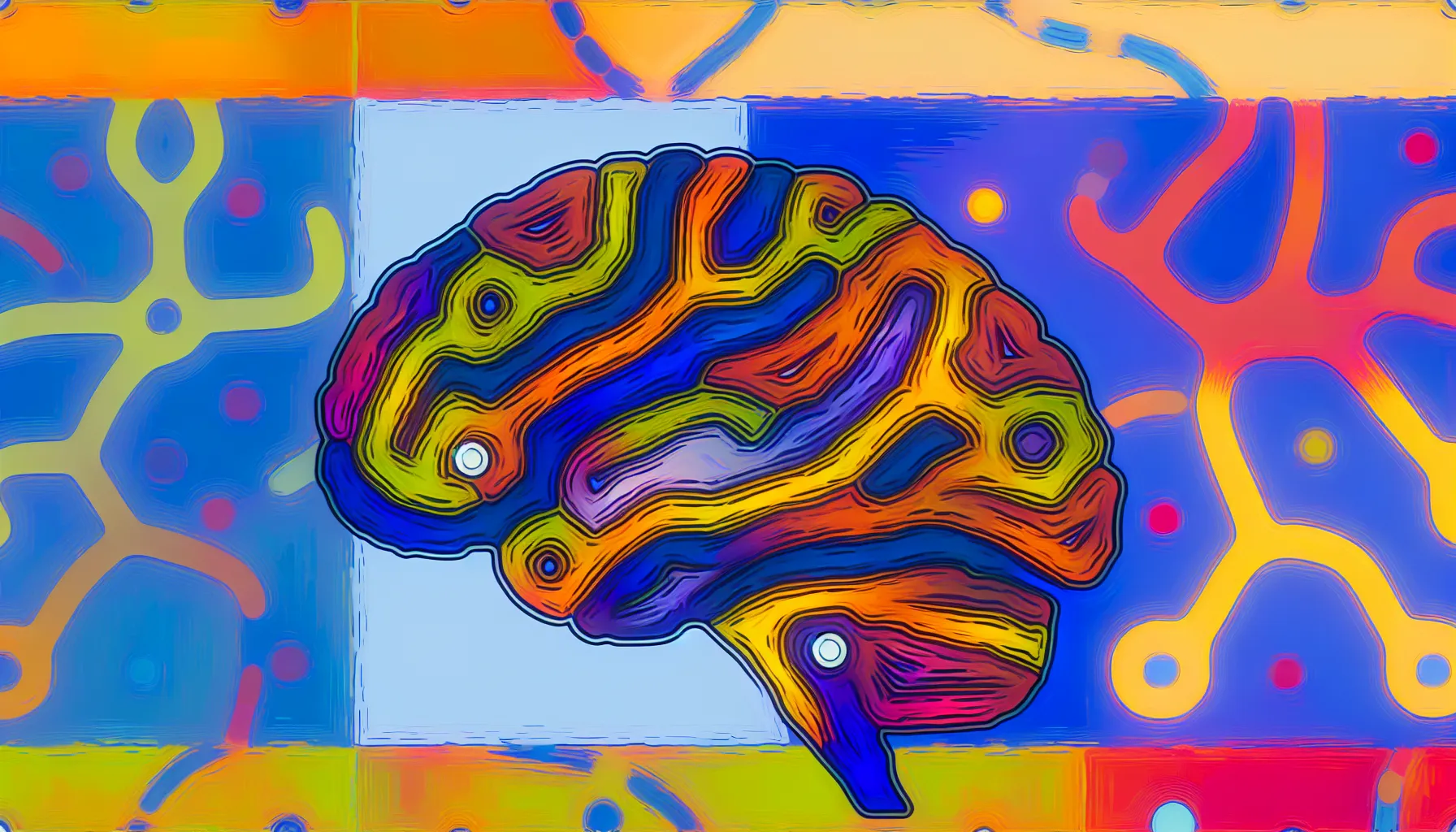“Emotional maturity is the cornerstone of personal development, essential for healthier relationships, better decisions, and overall well-being.”
As we delve into the facets of emotional maturity, let’s explore not just the ‘when’ but also the ‘how’ and ‘why’ behind men’s emotional growth.
Understanding Emotional Maturity
Growing emotionally is a complicated process influenced by many things. Let’s look at what emotional maturity really means. Becoming good at handling life’s ups and downs involves more than just getting older.
- Self-awareness: Gaining insight into your emotions, recognizing your strengths and areas for improvement, and understanding their influence on your actions and decisions.
- Emotional regulation: Mastering the art of managing your feelings, particularly in stressful or demanding scenarios.
- Empathy: The capacity to comprehend and resonate with others’ feelings, which enriches communication and strengthens bonds.
- Forming meaningful connections: Establishing and nurturing relationships characterized by mutual respect, trust, and comprehension.
These essential qualities not only refine personal interactions but are also considered invaluable in professional settings. Recognizing and fostering these traits can lay a strong foundation for personal growth and more fulfilling relationships.
Understanding these characteristics provides a foundation for recognizing maturity in ourselves and others.
What is Emotional Maturity?
Diving deeper into the science, the role of the prefrontal cortex cannot be overstated in its contribution to emotional maturity. This brain region, pivotal for decision-making, impulse control, and managing emotions, continues to develop until the mid-20s. It’s the brain’s executive suite, orchestrating all major decisions and emotional responses. This development trajectory explains the age at which individuals grow to understand themselves and navigate relationships better. Interestingly, while women may adapt to these changes faster, men often show signs of this growth slower, frequently maturing into their early 40s.

This maturation pace leads to challenges, like impulsive behavior or difficulty regulating emotions under stress. Yet, recognizing this process underscores the importance of patience and self-improvement in fostering meaningful relationships. Emotional growth is a continual journey of enhancing our brain’s capabilities, aiming for a harmony where wisdom, empathy, and self-awareness converge, making us better partners, parents, and individuals. This brain region’s growth trajectory sheds light on why men reach emotional maturity at different stages of life.
The Role of the Brain
It’s captivating to observe how the prefrontal cortex, our neural command center for decision-making, significantly influences the age men reach a deeper understanding in relationships. This critical brain area, responsible for impulse moderation and stress management, does not reach its peak until the mid-20s, extending substantial emotional advancement into men’s 30s and 40s. This extended timeline, notably more protracted than that of women, sheds light on why some men may seem immature in handling relationship dynamics early on. Yet, this delay is not a hindrance but a distinct phase of their developmental path.
Age and Emotional Maturity
Exploring the journey to maturity, we uncover a fascinating timeline marked by significant milestones for both genders. This path, far from linear, is shaped by a rich mix of biological, psychological, and societal influences. Men and women navigate through this terrain, reaching pivotal developments at varying ages.
By the age of 32, many women have honed their self-awareness, empathy, and emotional regulation. In contrast, men typically achieve these milestones by age 43, a divergence rooted in distinct brain development trajectories, life experiences, and socialization patterns.
| Milestone | Women | Men |
|---|---|---|
| Self-Awareness | Early 30s | Early 40s |
| Emotional Regulation | Mid 30s | Mid 40s |
| Empathy | Late 20s | Late 30s |
| Meaningful Connections | Early 30s | Early 40s |
Understanding these variances in developmental timelines offers invaluable insights, fostering patience and empathy in our connections. Such differences do not mean a rift but rather enrich the dynamic fabric of our relationships.
Comparing Men and Women
Historical and contemporary studies, including a notable one from 2013, provide insights into the ages men and women typically reach emotional maturity. Interestingly, it’s highlighted that men typically arrive at this stage around the age of 43, while women tend to reach it by 32. This 11-year disparity sheds light on the distinctive, multifaceted pathways shaped by factors such as neurological development, societal norms, and individual life events. These findings offer a fascinating glimpse into the continuous journey of growing and maturing emotionally.
The 2013 Study on Maturity
The 2013 Nickelodeon UK study revealed that men generally hit a significant milestone around the age of 43, a notable 11 years after women, who typically reach this marker by 32. This isn’t just a matter of timing but reflects a complex blend of influences. The protracted maturation of the prefrontal cortex plays a role, alongside societal expectations and personal life events, making the journey to maturity as distinct as each individual’s path. Recognizing these factors is key to encouraging growth in ourselves and the men in our lives.
Factors Influencing Emotional Maturity
The impact of reaching emotional maturity spans beyond personal well-being, influencing decision-making, relationships, and leadership capabilities. This complex journey is shaped by both biological factors, such as the prefrontal cortex’s development, and psychological elements including stress management and self-regard. Life’s array of experiences, be they challenging or supportive, molds a man’s perspective. Encountering adversities like job losses or navigating personal milestones, such as marriage, propels growth, while nurturing relationships enhance resilience and understanding. Thus, achieving maturity is an intricate dance of inherent traits and life’s encounters, ever-evolving with each new experience. As we conclude, remember that this journey is ongoing, offering significant rewards at each stage.
Biological and Physiological Factors
Biological and physiological elements significantly influence when men reach a certain age of understanding. The pivotal prefrontal cortex, responsible for critical decision-making and impulse moderation, matures through the mid-20s, equipping men with enhanced emotional regulation and stress management skills. Moreover, hormonal shifts, notably in testosterone levels, play a crucial role in mood and behavior, offering insight into the delayed alignment with societal expectations. This intricate interplay between nature’s schedule and personal life episodes shapes their path to understanding.
Psychological Factors
Psychological factors play a pivotal role in a man’s journey towards understanding. Independence fosters a sense of responsibility, enabling men to make informed decisions at the right age. Self-esteem is fundamental, shaping how men view themselves and their behavior. Learning effective stress management techniques is essential for handling life’s unavoidable challenges. By focusing on these psychological aspects, men can improve their emotional well-being and build stronger, healthier relationships.
Impact of Life Experiences
Life’s journey, filled with both triumphs and trials, profoundly shapes men’s progression towards wisdom. Celebratory moments, such as career milestones or the blossoming of meaningful connections, significantly enhance self-worth and encourage personal development. Conversely, adversities like divorce or career setbacks, while daunting, often catalyze pivotal transformations. These challenges compel men to face their insecurities, cultivating resilience and a deeper understanding of themselves. Through navigating these diverse experiences, men learn to better manage stress and foster more impactful interactions with others, marking significant strides in their quest for wisdom.
Signs of Emotional Maturity in Men
Recognizing the milestones of personal growth is pivotal for men striving to enrich their lives and careers. A hallmark of this advancement is self-awareness, the insight into one’s emotions and triggers. Coupled with this is emotional regulation, the adeptness at handling and responding to feelings with equilibrium. Furthermore, empathy allows mature men to connect deeply by understanding others’ perspectives. Also, demonstrating reliability and adaptability in diverse scenarios signifies a man’s capability to gracefully maneuver through life’s intricacies.
Self-Awareness and Emotional Regulation
Self-awareness is akin to having a personal GPS for one’s feelings, pinpointing exactly where you are emotionally and the reasons behind it. This profound insight enables men to traverse their inner emotional landscapes, identifying triggers and comprehending their reactions. Alongside, emotional regulation transcends merely suppressing emotions; it’s about mastering the art of thoughtful responses over impulsive reactions. Visualize maintaining composure during an intense debate or achieving equilibrium amidst turmoil. These competencies not only elevate personal interactions but also pave the way for a stable and rewarding life.
Empathy and Communication
At the heart of emotional growth lies empathy, the capacity to comprehend others’ feelings, fostering deep connections. This, coupled with effective communication—listening as much as speaking—allows men to navigate discussions smoothly, resolve disagreements amicably, and establish trust. These skills are pivotal in the progression toward age-appropriate emotional wisdom.
Dependability and Flexibility
Dependability and flexibility, the dynamic duo of personal growth, are essential. A dependable man, always punctual and true to his word, lays the foundation for trustworthy relationships. Flexibility, in contrast, equips one to adapt to life’s unpredictable nature and embrace new viewpoints. These attributes, when combined, pave the way for a man to age with grace, tackling stress and obstacles effectively, thereby nurturing enduring, resilient bonds.
Challenges and Solutions
One significant hurdle in advancing to a more seasoned stage of life is the absence of mature role models. Without exemplary figures to emulate, navigating the intricacies of growth can appear formidable. Proactively seeking mentors or joining communities valuing emotional intelligence can offer indispensable guidance. Moreover, overcoming childhood trauma is pivotal for progress. Engaging in therapy or support circles is beneficial. Importantly, defying societal norms that stifle the expression of emotions by embracing vulnerability and emotional acumen propels substantial personal advancement.
Lack of Role Models
Advancing to a more mature stage of life often encounters the significant challenge of the absence of mature role models. Without such figures to look up to, the journey of personal growth can seem daunting. It’s crucial to proactively seek mentors or immerse oneself in communities that prioritize wisdom and understanding. Additionally, addressing childhood trauma is essential for development. Participation in therapy or support groups can be incredibly beneficial. Crucially, challenging societal expectations that discourage open emotional expression by embracing one’s vulnerabilities and wisdom leads to profound personal growth.
Childhood Trauma
Adverse childhood experiences can cast long shadows over a man’s path to maturity, often obstructing the development of crucial emotional capabilities. These experiences may manifest as challenges in establishing secure relationships and navigating stress with resilience. Yet, there’s hope on the horizon. By seeking therapy or joining support groups, men can acquire the necessary insights and tools to heal these scars, facilitating a transition towards more mature and healthier emotional interactions and connections.
Socialization and Emotional Skill Development
The societal blueprint that dictates men to “man up” and bury their feelings has inevitably led to a widespread deficiency in navigating complex emotions and forging profound connections. Nevertheless, the journey toward emotional sophistication involves breaking free from these antiquated stereotypes. By embracing vulnerability, seeking mentorship, and fostering spaces that champion open expression, men can set the stage for enhanced emotional capabilities and more fulfilling connections. This path not only enriches personal lives but also alters the traditional narrative at any age.
The Benefits of Emotional Maturity
Embracing this journey can revolutionize one’s personal and professional life. A man adept at navigating disputes with elegance, exhibiting understanding, and fostering profound bonds enhances the quality of his connections. In the workplace, such competence in decision-making and leadership garners respect and efficacy. Yet, the pinnacle of this growth is the heightened well-being. Men adept at deciphering and regulating their feelings often enjoy diminished stress, paving the way for a healthier, more harmonious existence. Ultimately, this development heralds a rewarding and prosperous path, irrespective of age.
Improved Relationships
When a man reaches a state of greater understanding and empathy, his connections flourish. He masters the art of respectful and honest communication, reducing conflicts and misunderstandings. This newfound stability and reliability are key in nurturing trust and respect. Appreciating his partner’s viewpoints and embracing compromise, he lays the foundation for a rewarding and harmonious union. This personal advancement not only bolsters his bond with his partner but also elevates his entire network of relations, regardless of age.
Enhanced Decision-Making
One of the most significant hallmarks of advancement in age is enhanced decision-making. A man with a well-honed prefrontal cortex skillfully balances emotions and logic, navigating life’s challenges with dexterity. This mental acumen benefits both personal and professional realms, leading to sound judgments and fostering growth across all facets of life.
Overall Well-Being
As a man progresses in age, his journey towards a rich tapestry of overall well-being becomes evident. This evolution into a more balanced existence significantly enhances both personal and professional ties, nurturing a robust mental health landscape. It’s in this refined state that healthier lifestyle choices emerge, alongside a buoyant outlook and an adaptable demeanor, skillfully weathering life’s variances with poise.
Practical Tips for Achieving Emotional Maturity
For those navigating the voyage of self-enhancement at any age, initiating with introspective reflection stands paramount. Delving into one’s own psyche cultivates profound self-understanding. Equally vital is the development of empathy—endeavoring to truly comprehend and resonate with others’ sentiments carves pathways to enriched connections and elevated dialogue. Embracing strategies for stress equilibrium, like mindfulness or physical activity, aids in sustaining an emotional equipoise. Immersing oneself in an environment brimming with supportive bonds lays the cornerstone for continual personal evolution and refinement.
Engage in Self-Reflection
Self-reflection, akin to peering into your soul’s mirror, unveils the complex weave of your thoughts and actions. Regular introspection not only clarifies but engenders growth, spotlighting and eradicating behaviors that may impede progress. Consider it a cerebral regimen, bolstering your emotional intelligence with each introspective session, irrespective of age.
Develop Empathy
Cultivating empathy, akin to harmonizing with a vast emotional orchestration, demands that you not merely hear but profoundly understand the emotional cadences of others. Initiate by lending an active ear—shelving preconceptions to genuinely comprehend what’s conveyed. Delve into dialogues with openness and compassion, envisioning yourself in others’ positions to fully appreciate their viewpoints. With consistent practice, empathy will effortlessly weave into your interactions, enriching your connections at any age.
Practice Stress Management
Transforming stress into peace is like becoming a Zen master in chaos. Start with mindful meditation—daily deep breaths can create wonders. Engage in regular physical activity to dissipate tension. Don’t overlook the value of hobbies; they’re not just pastimes but gateways to mental peace. And, if the weight feels too heavy, seeking support from friends or professionals can lighten the load, enhancing well-being as you age.
Seek Supportive Relationships
Embracing supportive relationships plays a crucial role in personal advancement. Surrounding yourself with individuals who uplift and encourage your best self is essential. These connections offer a safe environment to share feelings and face life’s hurdles. Whether it’s kin, companions, or mentors, a robust support network is key to fostering stability as you age. Remember, fostering relationships is reciprocal—support others as they do you, cultivating mutual growth and understanding.
Conclusion
In conclusion, the path to personal growth is marked by self-reflection and empathy, enhancing one’s well-being as they age. It’s a continuous journey, not a destination, filled with learning and nurturing connections.
FAQ
-
Ah, the million-dollar query! Men typically arrive at the age of 43 before they start to appreciate the finer points of humor beyond fart jokes, lagging a whole 11 years behind women, who usually get there by 32.
-
Indeed, life's pivotal moments, such as divorce, job loss, or becoming a parent, can propel men toward deeper reflection and adaptation, hastening their journey to a more seasoned understanding of life.
-
The path to adulthood for men is nuanced, requiring effort and a commitment to self-betterment. It begins with introspection, understanding one's feelings and actions. Developing empathy, through attentive listening and valuing others' perspectives, is key to enhancing social awareness. Moreover, adopting stress relief methods like mindfulness or physical activities aids in steadiness during challenges. Building supportive networks that provide encouragement and honest feedback is also crucial.
-
Mastering the art of relationships, men who reach a certain age engage more profoundly, navigate conflicts with ease, and forge deeper bonds, heralding a phase of richer, more rewarding partnerships. It's a journey of mutual growth.
-
At a certain age, men exhibit self-awareness, reliability, and understanding, skillfully managing their feelings, enhancing communication, and honoring boundaries for more fulfilling interactions.











